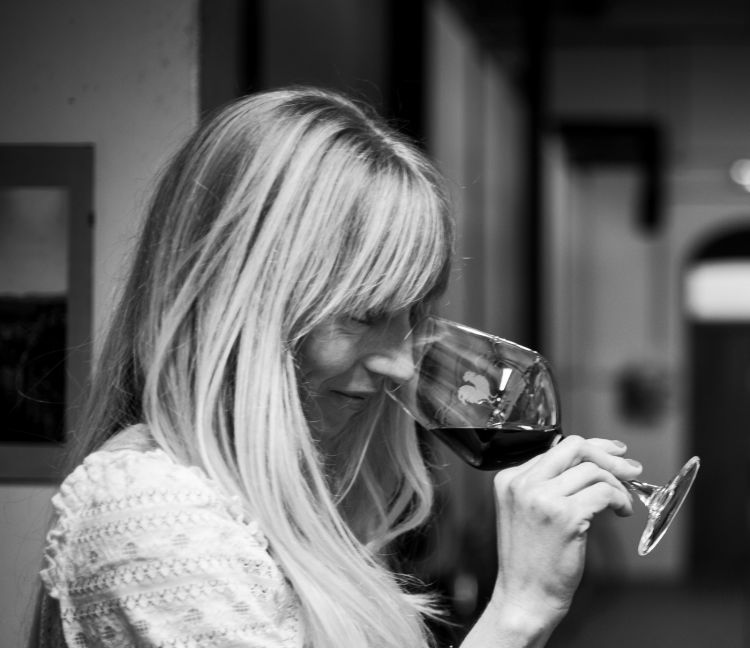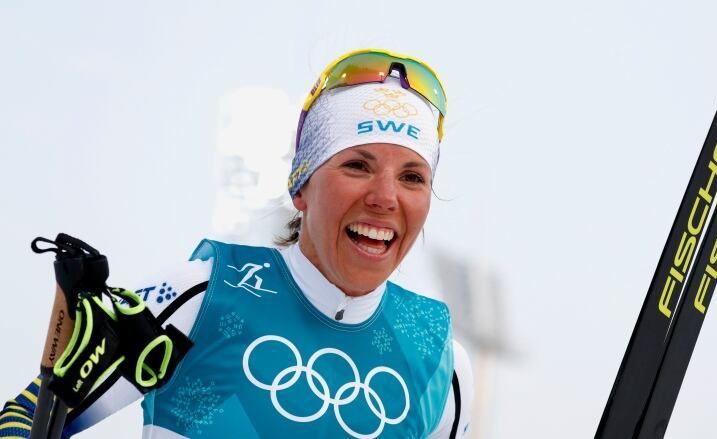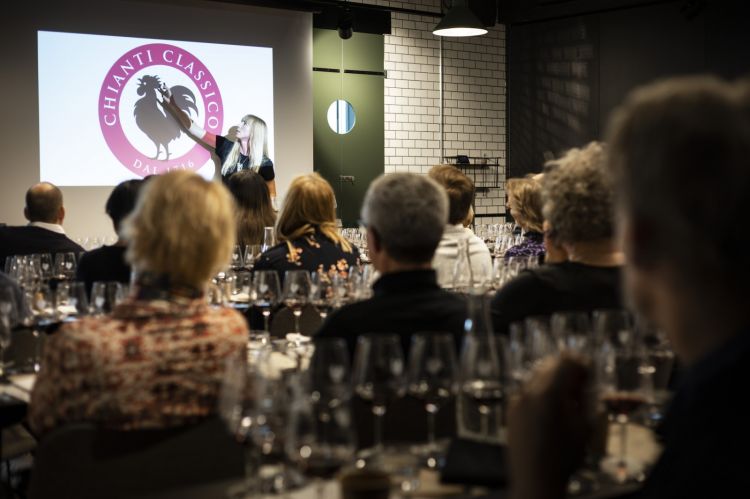A freelance collaborating with magazines and newspapers, Asa Johansson writes about Italian wine and food, travel and culture for publications in Sweden and Norway. She organises wine and food trips in Italy. A wine writer who has transformed her knowledge with great professional ethics, her greatest point of reference when writing about this field. A passion turned into a profession.
Since 2001 she lives with her family in Tuscany, in Chianti. She has two children and, with the help of the technical expertise of her husband Stefano, who builds oil mills, she produces extra virgin olive oil La Collina Blu, made from the trees surrounding her house. We met her.
How did you get to the world of wine?
By chance. I was studying Political Sciences in Florence. I found a job in a wine shop. I knew nothing of what I was selling – with limited success by the way – so I started to attend a sommelier course. I realised the world of wine thrilled me. What with courses in Italy and abroad, I never stopped learning. I need to pass another exam to get the WSET diploma. After graduating, I sent an e-mail to a Swedish tour operator, BKWine, that organises food and wine trips all around the world, asking if they needed help in Italy. I was surprised when they said yes and, with them, we developed the Italian market. For many years I travelled the Italian wine regions with my fellow nationals, learning a lot from the people we met.
Your passion for writing.
Writing has always been my dream. I had a strong desire to share what I saw during my travels. I started to query magazines and newspapers in Sweden. If you look me close you'll see my nose is rather flat because of all the doors shut in my face. However, at some point, I had my chance. I now work with the most important magazines in the industry in Sweden and Norway. The strategy of over-exhaustion worked. I'm happy to be surrounded by people who are better than me and inspire me to do always the best.

What do you remember of the first lockdown?
I returned to Italy, on the 6th of March, after organising the second edition of the Festival of Chianti Classico in Stockholm together with my colleague Sofia Ruhne. A few days later we were in lockdown. The first week I cried. I felt the world was crumbling. Then I looked at myself in the mirror, thinking that in times like these you must show what you're really worth. I decided to be flexible, positive. I contacted the magazines with which I work, and they converted the jobs that required travelling into things I could do from home. Given the situation, many decided to pay me more than usual, and this touched me, more than once.
How did you spend the quarantine?
In Tuscany, with my family. We are lucky to have a garden and we're not alone. Every day, after breakfast, I'd watch the video of the magical recovery of Swedish cross-country skier, Charlotte Kalla, from the last to the first place, during the Olympic games in Sochi in 2014. This to give me the energy to do my best, and to remind myself that when you think you're losing, you must work harder. Being stuck at home wasn't easy, given that I'm used to travelling over 100 days per year. Perhaps it was even harder for my family to have me around so much. Then came the summer and the second period of lockdown was harder to accept. But I understand the need. I don't want to get used to the idea of someone else making decisions about my future. I'm very worried about the future, the political and socio-economic situation. I see many people having a hard time and I believe that in terms of politics we must be ready not to accept dangerous compromises.
From your point of view how is the world of wine changing?
We've become more creative, aware that there can be different ways to communicate and sell wines. We have understood the potential of digital tools, even though there's still a lot to be done. If we want to be positive, I believe the traditional world of wine has been hit hard but this will do good in the long run. We've understood, overall, the need to diversify and work on varied channels, not just one, but to accept the influence of different worlds. While they cancelled most of the main wine events I continued, like everyone, by increasing the work online.

A ROLE MODEL. Charlotte Kalla, Olympic cross-country ski champion

Did this time of limbo help you develop new projects?
I always work on multiple projects at the same time. I continued working on them. The calm of this period allowed me to use this time to think about what's important for me. I even built a henhouse and enlarged our vegetable garden.
You also make oil, La Collina Blu.
A small project that started last year. Together with my husband Stefano we decided to start a small production of high-quality evo oil. We make few bottles; the project however is bringing lots of satisfaction. Above all, I'm happy to convey my knowledge of this exceptional Italian product in Sweden. The name is a tribute to the complicated neighbourhood of Blue Hill, in the northern outskirts of Stockholm, the place where I grew up. Children there start with little, but made richer with attention and love they can give much more than you would imagine. Just like olive trees.
What is the first thing you'll do when there will be the possibility of moving without restrictions?
I'll wear a dress with paillettes and go dancing, barefoot on the beach until dawn with plenty of smiling people and loud music.